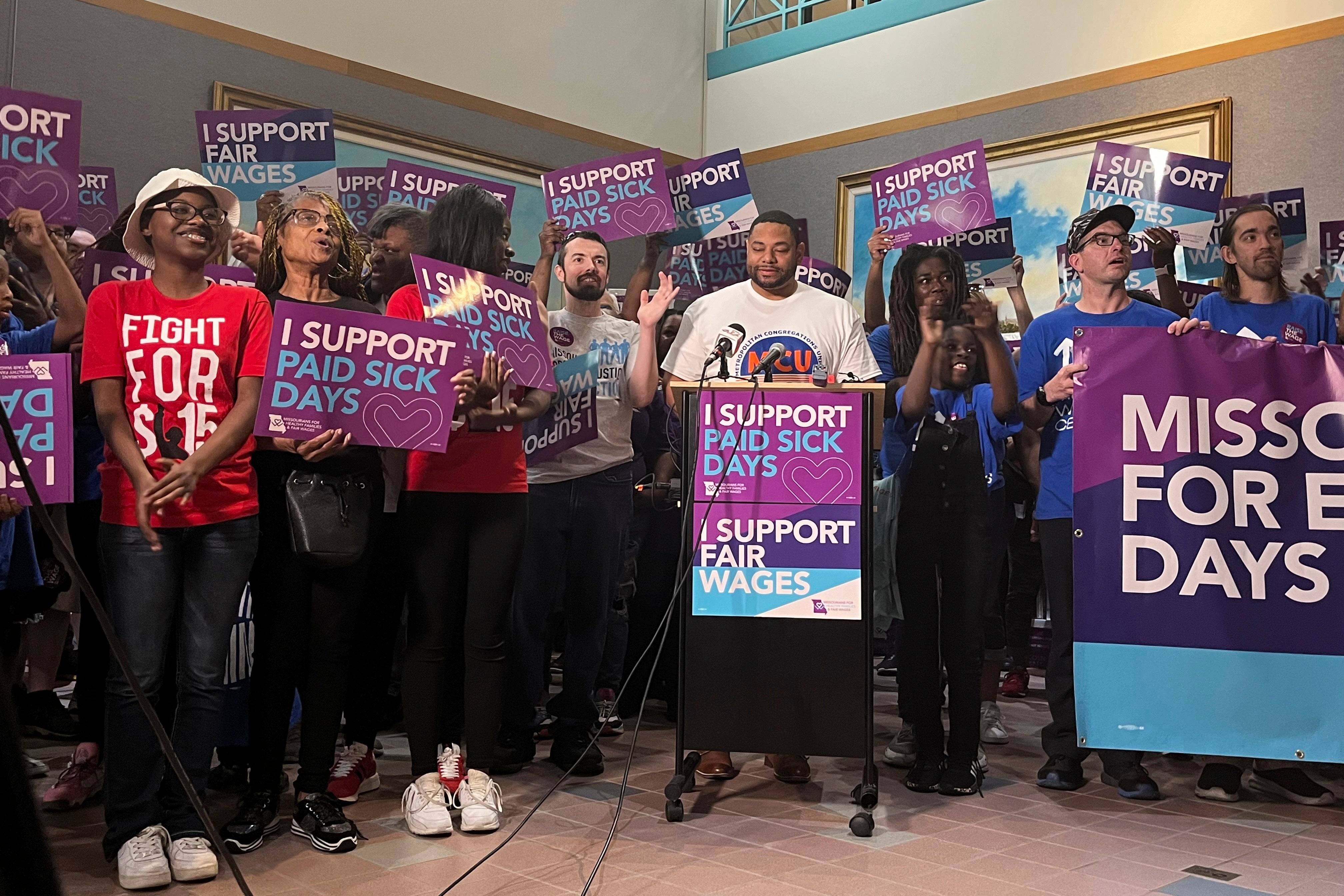Campaign to raise Missouri's minimum wage to $15 an hour confident it will get on the ballot
Missouri voters have gotten a step closer to getting to decide whether to raise the state’s minimum wage to $15 an hour

Your support helps us to tell the story
This election is still a dead heat, according to most polls. In a fight with such wafer-thin margins, we need reporters on the ground talking to the people Trump and Harris are courting. Your support allows us to keep sending journalists to the story.
The Independent is trusted by 27 million Americans from across the entire political spectrum every month. Unlike many other quality news outlets, we choose not to lock you out of our reporting and analysis with paywalls. But quality journalism must still be paid for.
Help us keep bring these critical stories to light. Your support makes all the difference.
Missouri voters on Wednesday got a step closer to getting to decide whether to raise the state's minimum wage to $15 an hour, after a group behind the effort said it turned in nearly double the required number of signatures.
The ballot measure backed by Missouri Jobs with Justice would raise the minimum wage from its current $12.30 an hour to $13.75 an hour next year and then to $15 an hour in 2026.
Citizen-driven amendments to Missouri law require more than 100,000 voter signatures to get on the ballot, and Missouri Jobs with Justice said it submitted about 210,000. Republican Secretary of State Jay Ashcroft's office must next determine if at least 115,000 or so are valid.
“We feel confident that voters will have an opportunity to pass this important initiative this fall," Caitlyn Adams, executive director of Missouri Jobs with Justice Voter Action, said in a statement.
Missouri voters historically have supported minimum wage hikes.
After the Republican-led Legislature in 2017 blocked St. Louis and Kansas City from raising wages in those cities, voters in 2018 approved a statewide minimum wage hike.
Under that plan, the wage floor — then $7.85 an hour — rose by 85 cents per year until it hit $12 in 2023. Pay rose again this year because of automatic increases tied to inflation.
The latest proposal also includes a requirement that workers get paid sick leave.
Employees currently not guaranteed sick days would earn an hour of paid leave for every 30 hours worked under the measure.
Businesses with fewer employees would be required to allow a minimum of five paid sick days per year, and larger companies would be required to offer at least seven paid sick days.
Subscribe to Independent Premium to bookmark this article
Want to bookmark your favourite articles and stories to read or reference later? Start your Independent Premium subscription today.